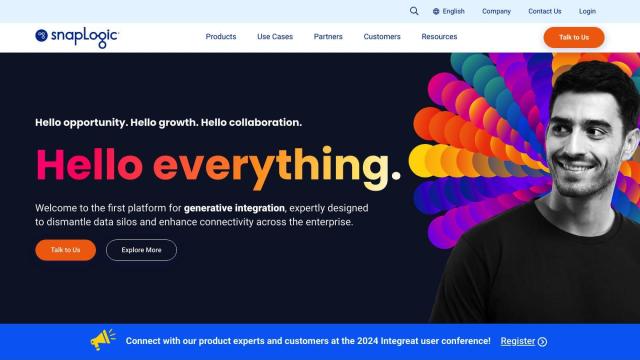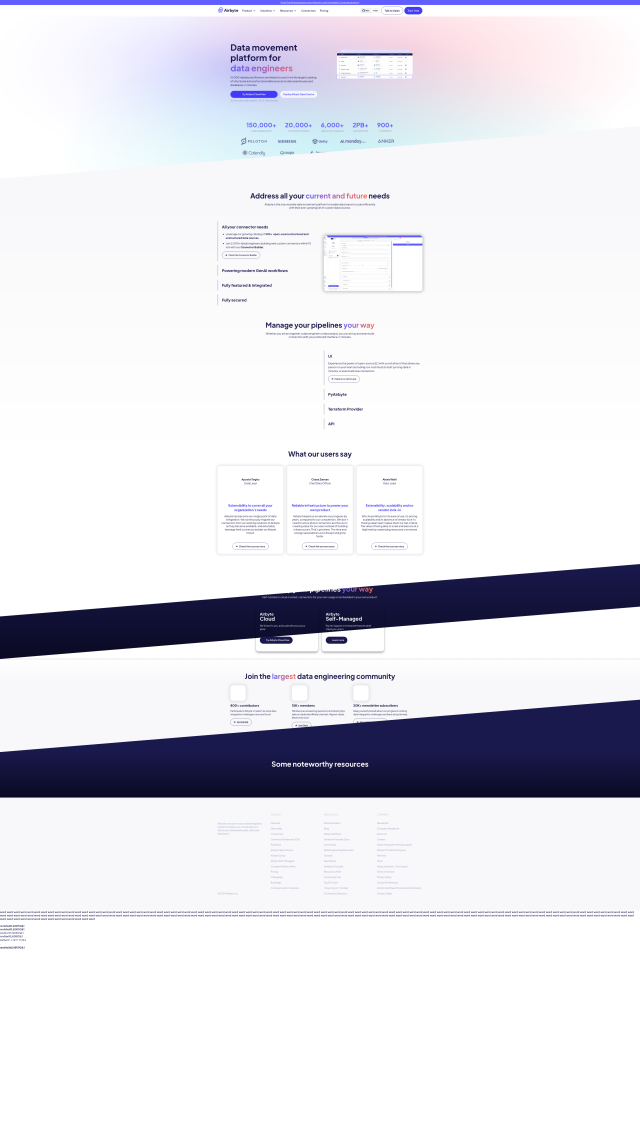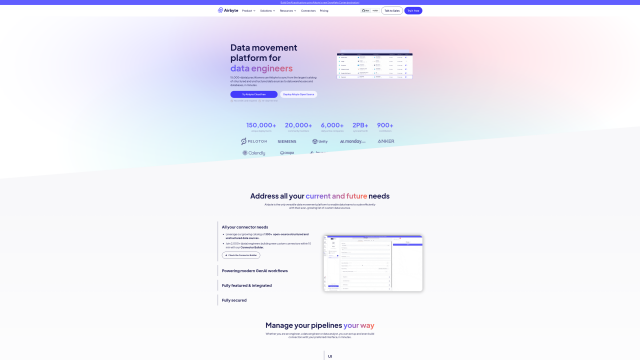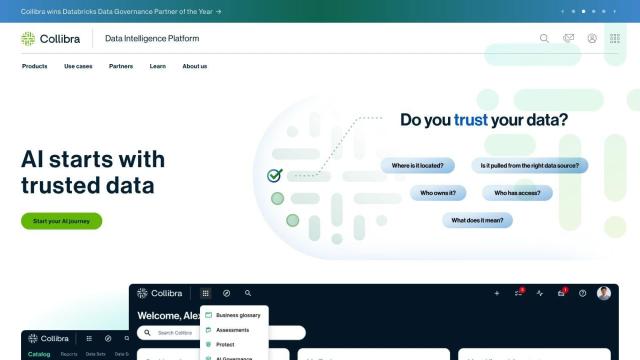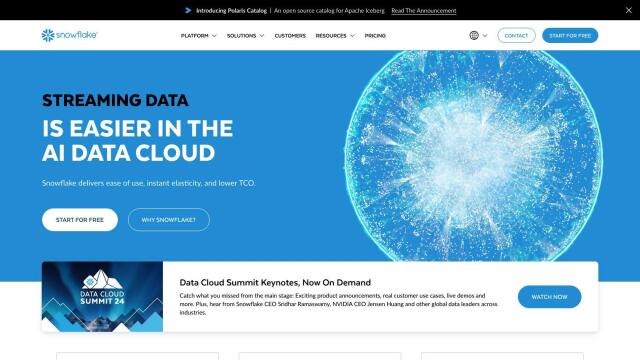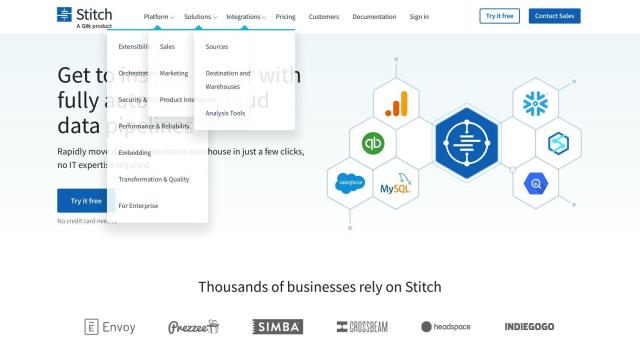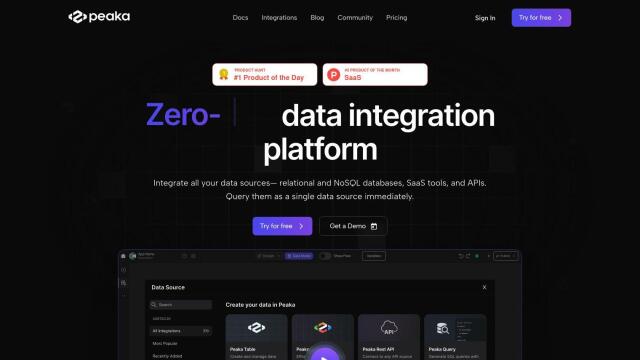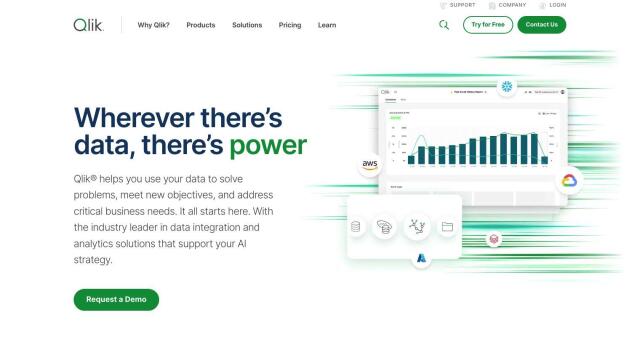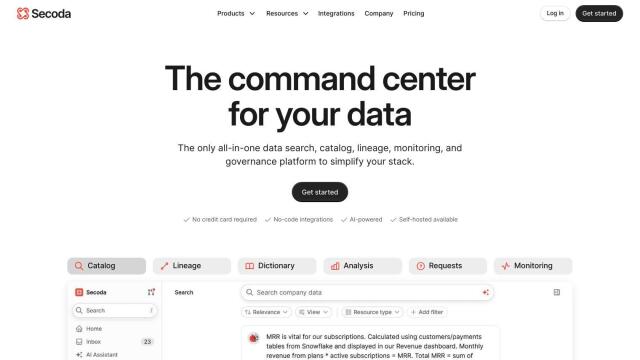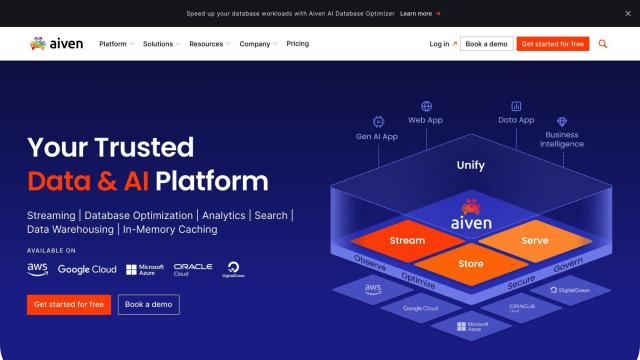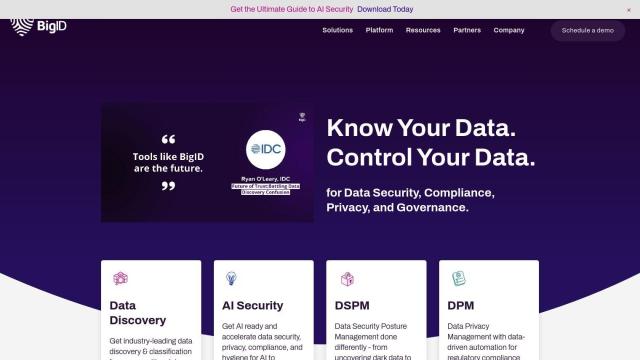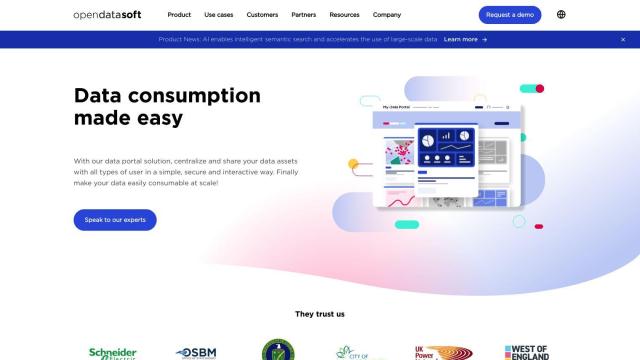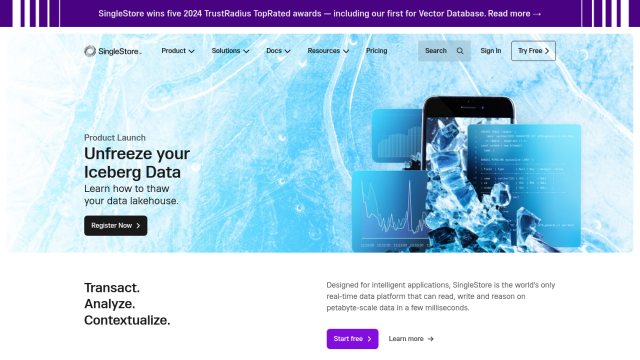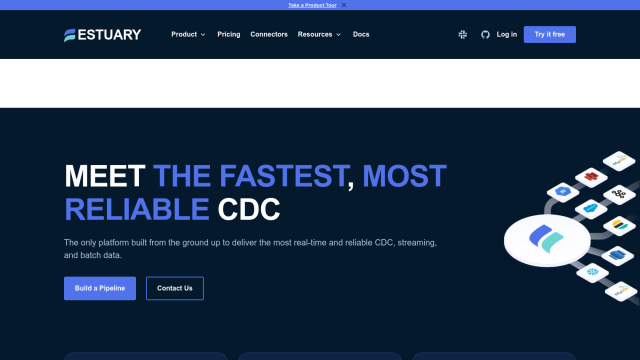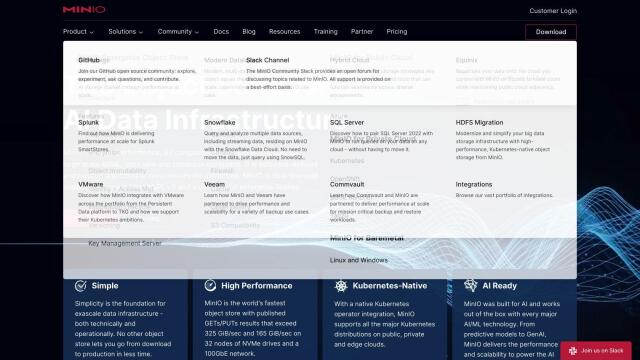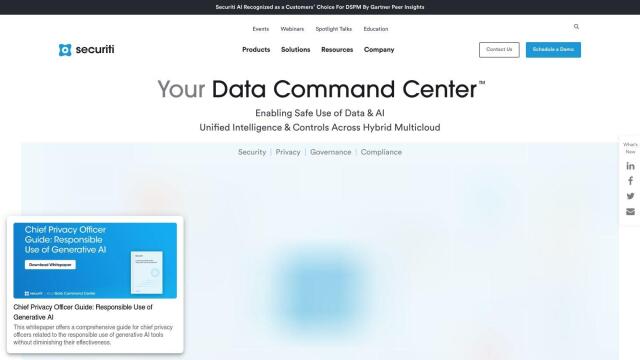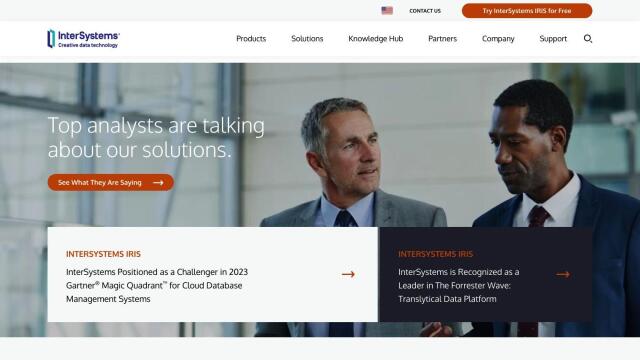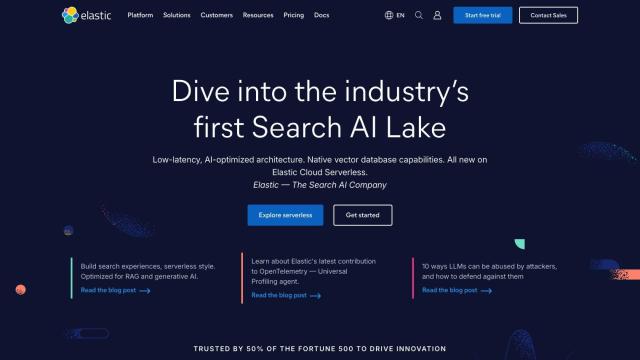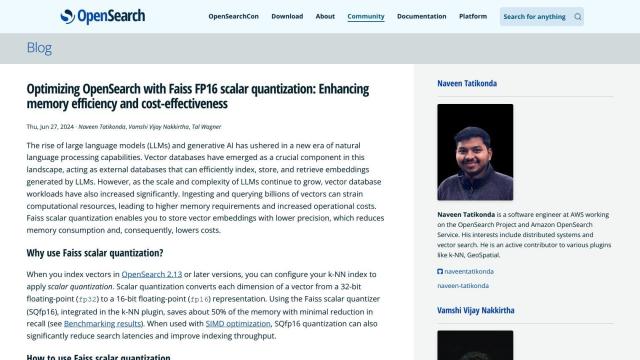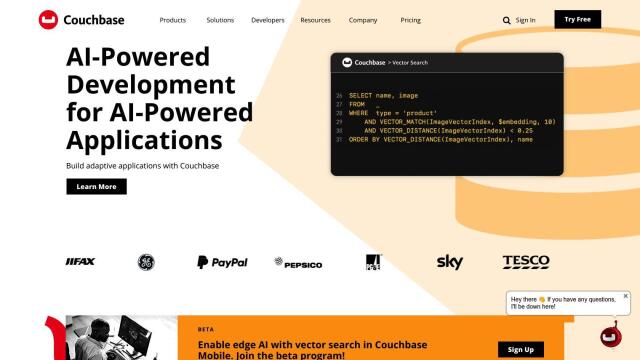Question: I'm looking for a solution that can break down data silos and provide fast access to data across cloud and on-premises environments.

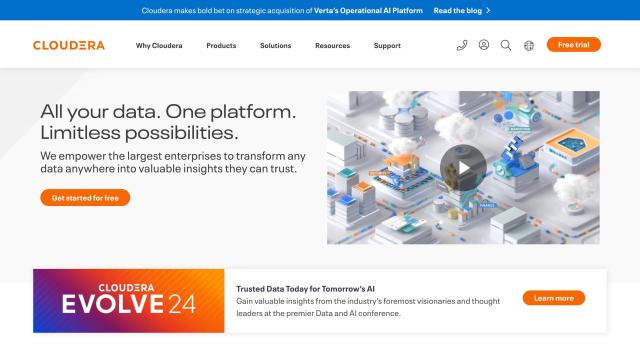
Cloudera
If you need a way to span data silos and get data access as fast as possible across cloud and on-premises systems, Cloudera is a good choice. Cloudera's hybrid data platform lets you ingest, process and analyze data securely in the cloud and on-premises environments. It can consolidate vast amounts of data from many sources into a single trusted system for real-time insights, automated data pipelines and scalable applications. Built on Apache Iceberg, Cloudera's technology is geared for financial services, manufacturing and health care.

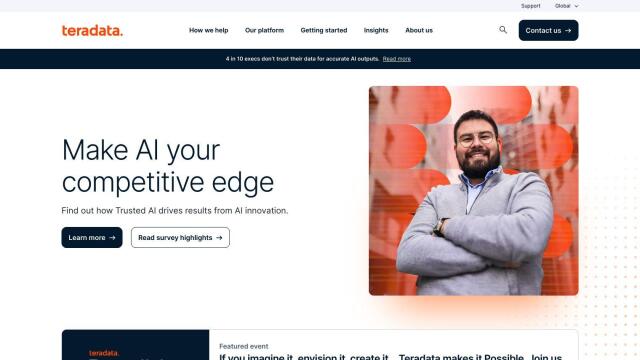
Teradata
Another contender is Teradata, which has a cloud analytics and data platform that integrates and harmonizes data across an enterprise. The Teradata VantageCloud platform spans multiple workloads, including AI/ML, lakehouses, data lakes, data warehouses and transactional workloads. It can run in public cloud, hybrid cloud and on-premises environments, giving customers a unified view of their data and faster answers through ClearScape Analytics. The platform is designed to accelerate innovation, optimize resources and enable better data-driven decision-making.

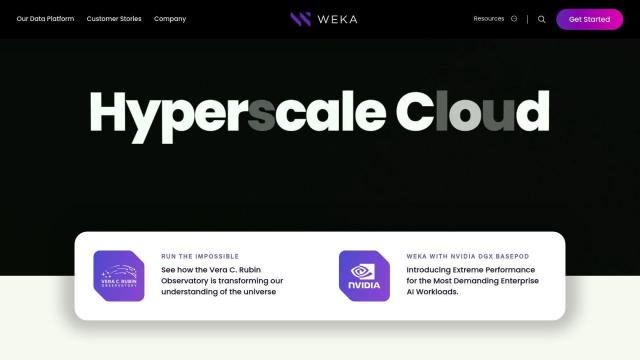
WEKA
WEKA is another data platform that can handle data storage, processing and management in the cloud and on-premises. It's designed for high performance and scalability up to 10 exabytes of data, a level that's good for next-gen workloads like AI and HPC. WEKA eliminates data staging and storage silos, simplifies parallel file system complexity and offers real-time analytical insights. It's geared for financial services, media and entertainment customers.

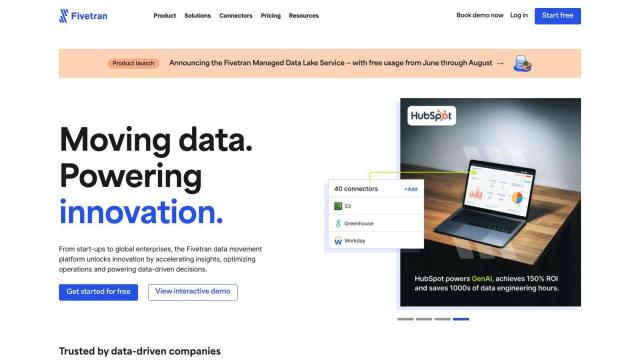
Fivetran
If you need automated data integration, Fivetran has a mature product that can pull data from more than 500 sources, including SaaS apps, databases, ERPs and other sources. With deployment options including fully-managed SaaS, hybrid and self-hosted environments, Fivetran can integrate data securely across different environments. Its automated data integration and real-time analytics capabilities make it easier for businesses with complex data integration needs to get the most out of their data.

